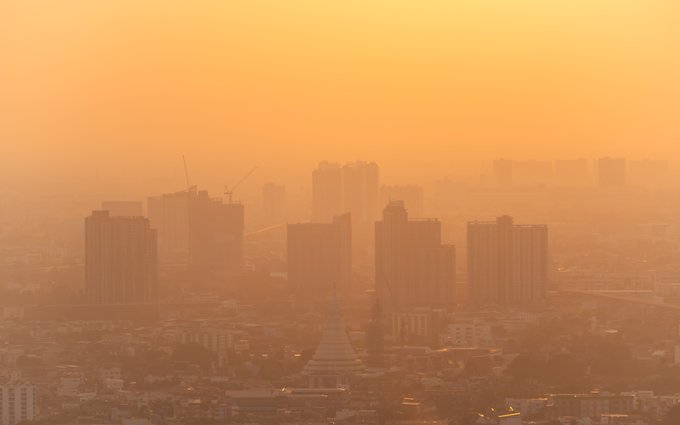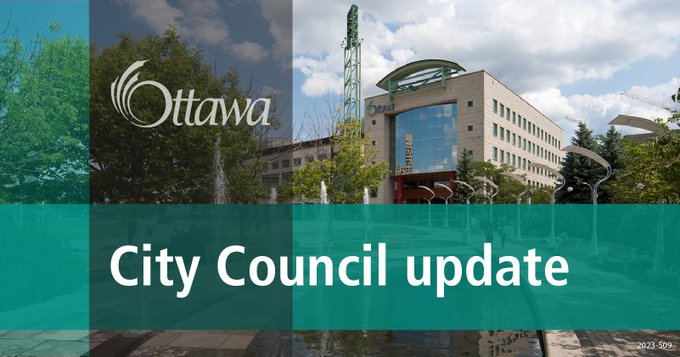A Special Air Quality Statement has been jointly issued by Environment and Climate Change Canada (ECCC) and the Ontario Ministry of Environment, Conservation and Parks (MECP) because high levels of air pollution are expected or occurring. High levels of air pollution are possible through the day today, Monday, June 5, and possibly through Tuesday, June 6, 2023, due to wildfire smoke migrating into the City of Ottawa.
Ottawa Public Health notifies service providers of vulnerable residents when hazardous levels of air pollution are forecast to advise on how to deal with these conditions.
The MECP measures air quality in the City of Ottawa, provides hourly readings and next day forecasts on the province’s air monitoring network, and calculates the Air Quality Health Index (AHQI), which informs Ontario residents about regional air quality conditions.
Small children, pregnant woman, older adults, people with lung or heart conditions, and people involved in strenuous outdoor work or sports are at greatest risk from poor air quality and should monitor their symptoms and take precautions if warranted until the air quality improves.
Air pollutants including smoke from wildfires can irritate the lungs, eyes, nose, and throat and can cause coughing, wheezing and difficulty breathing. People with heart or lung conditions may be more sensitive to the effects of smoke and should monitor their symptoms and take steps to reduce their exposure to smoke and, if necessary, and seek medical attention if symptoms worsen.
When wildfire smoke is affecting our air quality, residents and visitors should:
- Make a plan to avoid breathing in smoke. depending on your risk factors, and what resources you have available to you. Consider postponing outdoor exercise until the air quality has improved. If your breathing becomes difficult or uncomfortable, stop the activity and go indoors.
- Consider staying indoors, shutting windows, and putting your HVAC system on recirculate.
- Be aware of your symptoms. Call 8-1-1 Health Connect Ontario for non-emergency medical advice and seek medical attention if needed.
- Follow your asthma or personal care plan if you have asthma or other chronic illnesses.
- If needed, consider visiting a location like a shopping mall with filtered air.
- Keep your vehicle windows closed and set the ventilation system to recirculate.
- Check on neighbours, friends, and family and share this information.
- Pay attention to local air quality reports since air quality may be poor even though you may not be able to see smoke. Information is available at www.airhealth.ca and www.airqualityontario.com and on our Ottawa Public Health website.
Residents who have questions about the impact of poor air quality on their health can call the Ottawa Public Health Information Line at 613-580-6744 (TTY: 613-580-9656). Connect with us on Facebook, Twitter and Instagram.
Information from Environment Canada regarding the Special Air Quality Statement:
Smoke is causing or expected to cause poor air quality and reduced visibility. High levels of air pollution are expected due to smoke from forest fires. Smoke plumes from local forest fires as well as forest fires in Quebec have resulted in deteriorated air quality. Poor air quality will persist through the day today and possibly through Tuesday for some areas. Air quality and visibility due to wildfire smoke can fluctuate over short distances and can vary considerably from hour to hour.
For more details, please consult www.canada.ca/en/environment-climate-change/services/air-quality-health-index/wildfire-smoke.html.
Wildfire smoke can be harmful to everyone’s health even at low concentrations. Everyone can take action to reduce their exposure to wildfire smoke.
People with lung disease (such as asthma) or heart disease, older adults, children, pregnant people, and people who work outdoors are at higher risk of experiencing health effects caused by wildfire smoke. Speak with your health care provider about developing a management plan for wildfire smoke events and maintaining a supply of necessary medications at home and always carrying these medications with you during wildfire season.
Stop or reduce your activity level if breathing becomes uncomfortable or you or someone in your care feel unwell. Contact your health care provider or local health authority if you develop severe symptoms or need advice.
Check the Air Quality Health Index (AQHI) and monitor your symptoms. People respond differently to smoke.
Mild irritation and discomfort are common, and usually disappear when the smoke clears. Drinking lots of water can help your body cope with the smoke. If you have an HVAC system in your home, use the highest rated MERV filter for your system (ideally rated 13 or higher) and set the fan to recirculate air constantly. You can also use a portable High Efficiency Particulate Air (HEPA) air cleaner. Keep your doors and windows closed if the temperature in your home is comfortable. Take a break from the smoke at a location in your community where you can find clean, cool air.
If you must spend time outdoors, a well-fitted respirator type mask (such as a NIOSH certified N95 or equivalent respirator) that does not allow air to pass through small openings between the mask and face, can help reduce your exposure to the fine particles in smoke. These fine particles generally pose the greatest risk to health. However, respirators do not reduce exposure to the gases in wildfire smoke.
It is important to listen to your body and reduce or stop activities if you are experiencing symptoms. Be sure to check on people in your care and those around you who may be more susceptible to smoke. Reduce sources of indoor air pollution. If you can, avoid smoking or vaping indoors, burning incense and candles, frying foods, using wood stoves and vacuuming. Dust on indoor surfaces can be removed by wiping and wet mopping during a pollution episode.
If you experience any feelings of stress, anxiety, or depression, contact your mental health care provider for advice or visit https://www.wellnesstogether.ca/en-CA.
Visit www.airhealth.ca for information on how to reduce your health risk and your personal contribution to pollution levels, as well as for current and forecast AQHI values.



